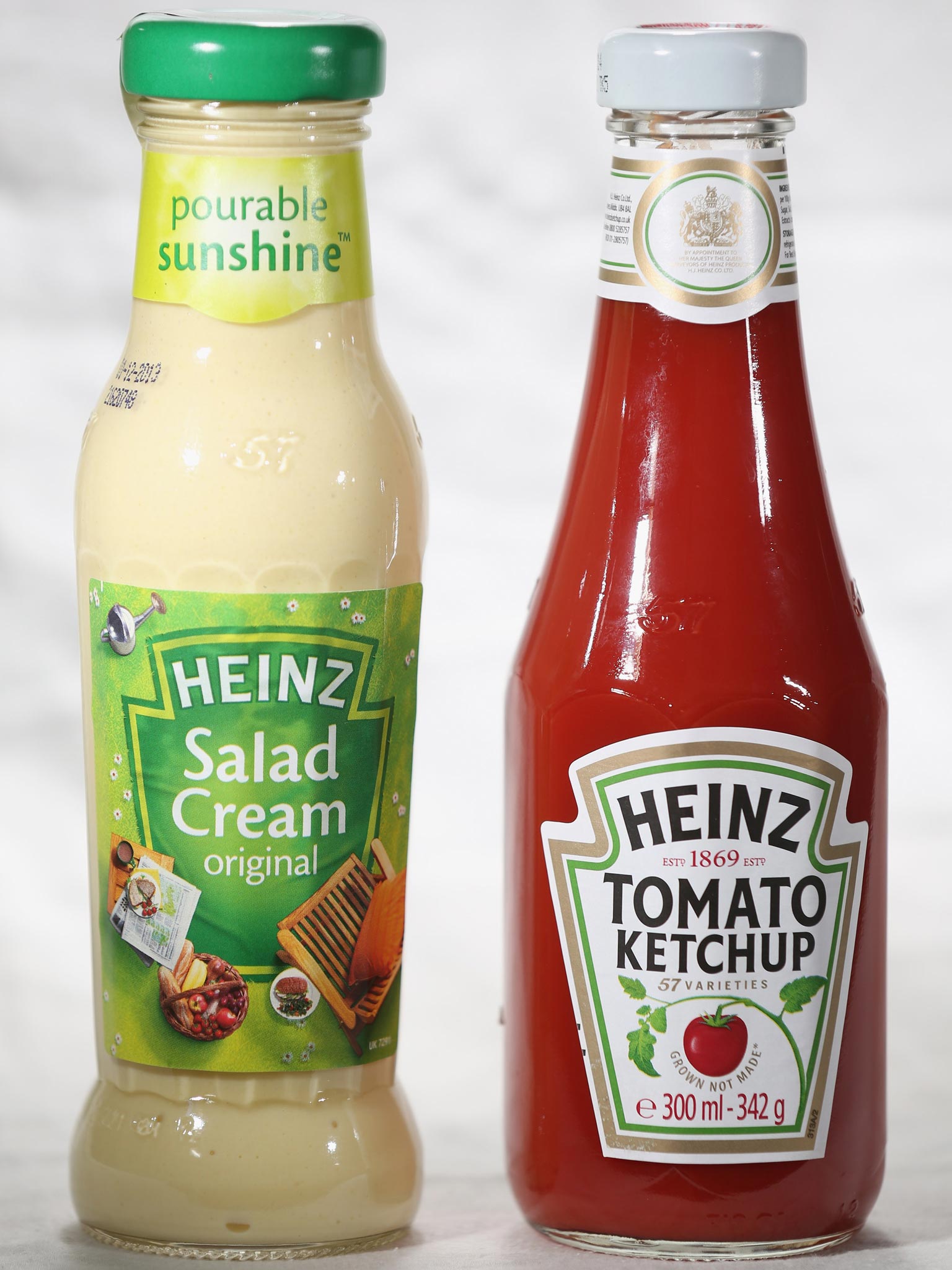Heinz Salad Cream celebrates its 100th anniversary next week - but is it just a poor man's mayonnaise?
Caroline Corcoran pays homage to an often overlooked, completely unironic and very British condiment

Your support helps us to tell the story
From reproductive rights to climate change to Big Tech, The Independent is on the ground when the story is developing. Whether it's investigating the financials of Elon Musk's pro-Trump PAC or producing our latest documentary, 'The A Word', which shines a light on the American women fighting for reproductive rights, we know how important it is to parse out the facts from the messaging.
At such a critical moment in US history, we need reporters on the ground. Your donation allows us to keep sending journalists to speak to both sides of the story.
The Independent is trusted by Americans across the entire political spectrum. And unlike many other quality news outlets, we choose not to lock Americans out of our reporting and analysis with paywalls. We believe quality journalism should be available to everyone, paid for by those who can afford it.
Your support makes all the difference.When Fabio Capello banned tomato ketchup during the 2010 World Cup, it was yet another source (or should that be sauce?) of contention. So Roy Hodgson's decision to reverse the condiment crackdown and put the red and even brown stuff back on the table has been greeted with relish. "The sauce is a sore point," admitted England goalkeeper Ben Foster. "But we're allowed it now, yes. And butter as well."
Yet I can't help thinking that the England manager might have let one slip through the net. Salad cream, once so nationally beloved it was known as "the English sauce", celebrates its 100th birthday next week, and yet for some people it's still little more than a poor man's mayonnaise.
There were many food-based shocks for me when I first moved to London from the North-west. The 3pm reach for something called "ricecakes", which my colleagues would eat without condiments or toppings, parching their poor mouths at their desks as I looked over in confusion from the crisp machine. They liked raw fish. Their enthusiasm for hummus knew no bounds. But the most alarming difference was the ubiquity of the worst condiment of all: mayonnaise. In a city where everyone thinks of themselves as a bit of a foodie, salad cream had found itself on an unofficial list of foods that just weren't "done".
We're still buying salad cream – 40,409,760 bottles were sold last year, 75 per cent of them Heinz – but it's seen as a guilty pleasure to be snuck into the trolley, not something you'd present at your dinner table with pride.
It wasn't ever thus. While a recipe for English Salad Sauce appeared in Eliza Acton's 1845 Modern Cookery For Private Families and a salad cream made it into Mrs Beeton's Household Management, it took a US firm to popularise this most British of condiments. Salad cream was the first product developed by Heinz specifically for the UK market and took eight years to perfect, finally appearing in grocers' shops in 1914. It was produced in Harlesden, West London where 180 dozen jars a day were handpacked in straw-lined barrels, with a halfpenny bonus if workers reached their targets.
The signature tang was something that Charles Helen, who ran Heinz in the UK at the time and meticulously oversaw its creation, believed would appeal to British taste buds. During the 1940s, when tomato ketchup was in short supply, people turned to salad cream to make bland rations tasty. But gradually times changed and salad cream went from being the only salad dressing on the block in wartime to just one more option in an increasingly packed market. There was also the fact that people were travelling more; they came back from Italy with aged balsamic vinegar and from Greece with tzatziki. Salad cream had simply lost its monopoly and, in the 1990s, Heinz considered scrapping it.
But there was such an outcry that the issue was even raised in the House of Commons and Heinz invested £10m in an ad campaign, increased the price by 40p (no doubt to satisfy snooty Londoners) and Salad Cream was saved for the nation. Which is a relief because, unlike Fabio Capello, salad cream gets us. It gets our British love for putting things between two slices of bread. It gets that we might all have spent the past decade getting into Korean barbecue pop-ups and thrice-cooked chips but, really, we're masquerading. Showing off. Trying to be fancy when we bleed OXO gravy.
The Italians might have huge vats of oregano-tinged tomato sauces; the French may use up their proliferation of olives in rich tapenades. But the Brits? When it comes down to it, a vinegary, pale yellow gloop that we can squeeze on to a door-stopping cheddar sandwich will do us just fine, thanks.
Join our commenting forum
Join thought-provoking conversations, follow other Independent readers and see their replies
Comments